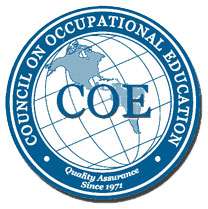Nursing Program
How to Choose the Right Vocational Nurse Programs in California
Demand for nurses is skyrocketing. Now could be the time to take the next step in your career by becoming a licensed vocational nurse.
With the number of vocational nurse programs in California, how do you know which one to choose? Keep reading to learn what to look for in a vocational nurse school.
Length of the Licensed Vocational Nurse (LVN) Program
Vocational nurse programs in California usually take a year to complete. A full-time program can take as long as 14 months. Going to school part-time for your LVN training will take 18–20 months.
If your situation doesn’t allow you the time for a full-time program, look for a school with a part-time option.
Online vs In-Person Vocational Nurse Programs
Most vocational nurse programs in California are in-person. You benefit from direct interaction with faculty and fellow students.
Some programs offer a hybrid model, though. You take some coursework online and do the hands-on clinical hours in person. Hybrid and in-person programs must meet the same educational criteria.
A hybrid online program gives you more flexibility. It may be less expensive.
However, you need to be very self-disciplined to succeed in an online program. Be sure to ask how available the faculty will be if you have questions or need extra help. Also, be sure you understand how you will earn your required clinical hours.
Accreditation for Vocational Nurse Programs in California
Accreditation is essential for your success as a vocational nurse. You can transfer credits to another school or pursue an advanced nursing degree more easily. You’re more competitive on the job market.
Accreditation gives you assurance of educational quality. The main accrediting organizations for nursing are:
- The Accreditation Commission for Education in Nursing (ACEN)
- The Commission on Collegiate Nursing Education (CCNE)
The state Board of Nursing must also approve the program. You must have graduated from an approved program to earn your LVN license in California.
NCLEX Pass Rates
To earn your license as a vocational nurse, you must pass the NCLEX. The NCLEX is the National Council Licensure Examination for Practical or Vocational Nurses. It’s a requirement in all states.
The NCLEX tests your ability to apply the knowledge and skills you learned during LVN training.
Vocational nurse programs should be able to tell you their first-time NCLEX pass rate. A high pass rate shows that students who finish the program are well-prepared for success. You’ll be in a better position for the exam and for your career in nursing.
Program Environment and Atmosphere
No matter how good a program looks on the website, it may not be the best environment for you. Try to visit several schools. You can experience the campus and meet some of the faculty and students.
You want to see spaces including:
- Classrooms
- Nursing labs
- Libraries
You can ask questions and see if the community will be a good fit for you. Choosing a program that makes you feel comfortable will help you get more from your education.
Choosing the Right Vocational Nurse School in California
Choosing the right program for your LVN training is the key to success. Look for a program that fits your lifestyle and your needs. You want an accredited program that will prepare you to pass the NCLEX.
You want a program with an atmosphere that fits who you are.
Healthcare Career College stands out from the many vocational nurse programs in California. Our program gives you the hands-on training, classroom knowledge, and industry insight to succeed in your nursing career. We have a 100% NCLEX pass rate in 2023.
Book an information session today to learn how Healthcare Career College can help you launch your new career in nursing.



